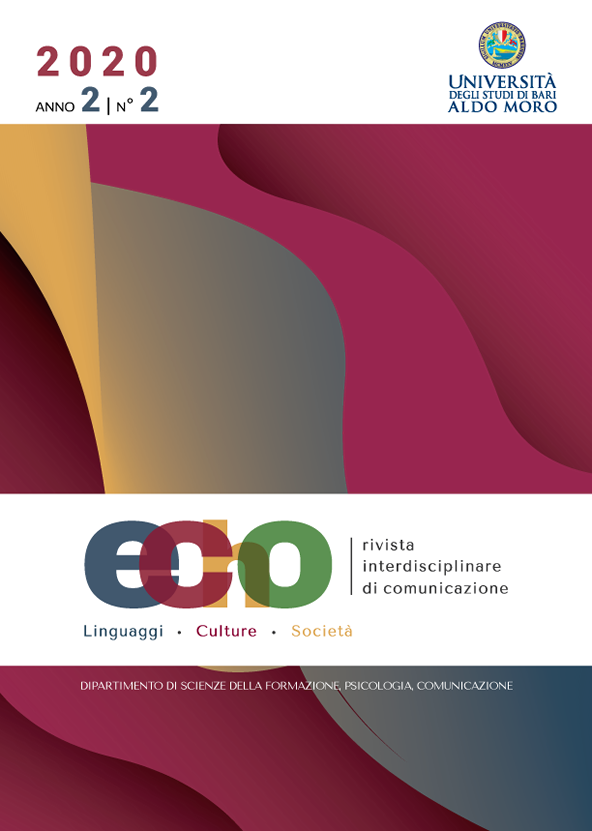Blurred identities and transnational sexuality in Amitav Ghosh and Salman Rushdie’s recent fiction
DOI:
https://doi.org/10.15162/2704-8659/1214Parole chiave:
Migration, blurred identities, transnational sexuality, postcolonial literatureAbstract
Postcolonial literature has always been interested in exploring what is double, ambiguous, multiform, and migrant. Amitav Ghosh and Salman Rushdie have notoriously dealt with those topics in their novels, such as in their most celebrated The Shadow Lines (1988) and The Satanic Verses (1988). The postcolonial theory of 1980s pervades their masterpieces, especially considering scholars’ focus on the costs of the blurring global phenomena on migrant processes. Tejander Kaur has properly underlined how diaspora experience of the 1980s “has assumed newer and vibrant dimensions. The experience of migrancy and Diaspora also engenders various problems and facts of journeys and relocation in new lands e.g. displacement, up-rootedness, discrimination, alienation, marginalization crisis in identity, cultural conflicts, yearning for home and homeland etc.” (Kaur 2008, p. 8). Moreover, Victoria Arana has accurately added that migrants “sought to affirm their personal process of renegotiation, their cultural diversity, and the denial of rigid borders between black and white” (Arana 2005, p. 237). Those prerogatives have been the seeds of a harsh debate begun in 1987 among postcolonial scholars and novelists to point out the inadequateness of the term “Black” and of similar notions, “terms that mask the ‘constructedness’ of much more complex racial and ethnic identities” (236). Nowadays those same identities have undergone another significant change due to the collapse of historicism and of the centre-periphery dichotomy, as well as to the spread of globalization. In their more recent production – especially in Sea of Poppies (2008) and The Golden House (2017) – both Ghosh and Rushdie investigate the influence of such phenomena on migrant identity by observing and narrating multiple processes of erection of blurred identities in a changing world. The Golden family in Rushdie’s text and Ghosh’s coolies on the vessel Ibis are groups of migrant people who do not hesitate to abandon their beliefs for a “rebirth” in a new host land. By looking for new belongings in foreign lands – else/nowhere places which do not assure to welcome them – migrants from the Asian continent wish to remove every link to their past lives and worlds thanks to the acquisition of a new identity, a goal achieved at the expense of deep inner conflicts. The characters of Dionysus Golden and Baboo Nob Kissin are epitomes of that condition. They both embody the difficulties and aspirations of their communities; moreover, in the middle of their migrant journey, they also experience a personal “migration” towards a new gender identity which should lead them to a sort of “reincarnation” into a spiritual – but also a physical and actual – femininity. Gender and migrant identities thus escape from the traditional and usually accepted definitions which see XXI-century young migrants like Dionysus and the respectable gomusta of colonial India like Nob Kissin as prototypical emblems of virility. Therefore, in their novels, Ghosh and Rushdie deal with transgender, transnational, and transcultural movements: the vicissitudes of the characters twist and turn through two multicultural microcosms – contemporary New York and the vessel of the East Indian Company Ibis – which are temporally distant, but strongly convergent.








